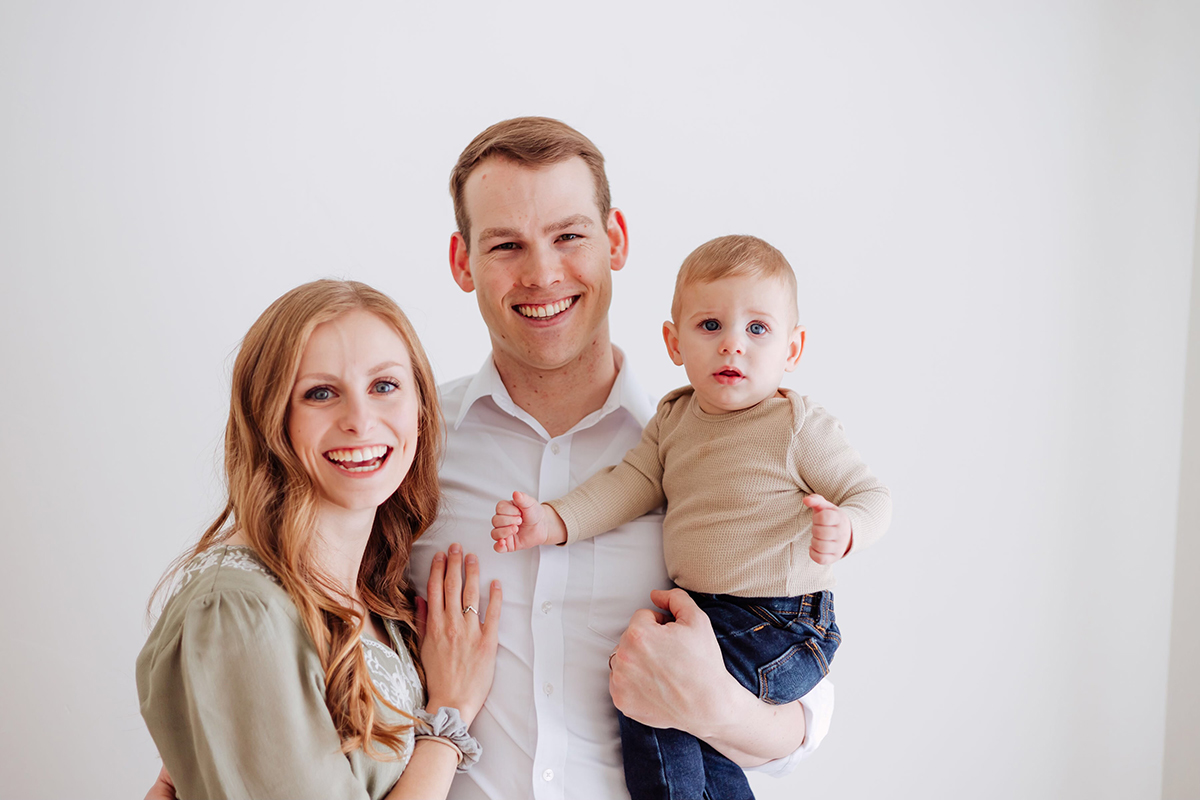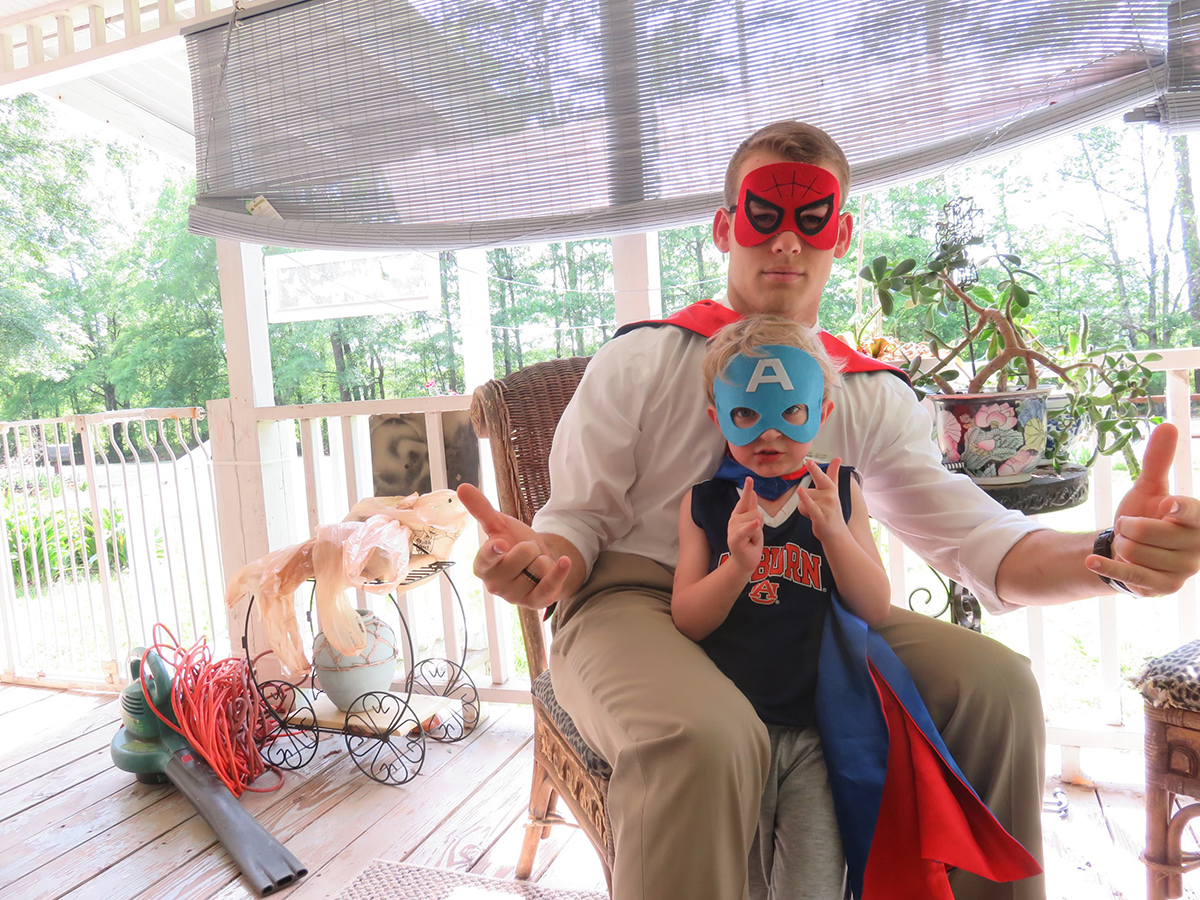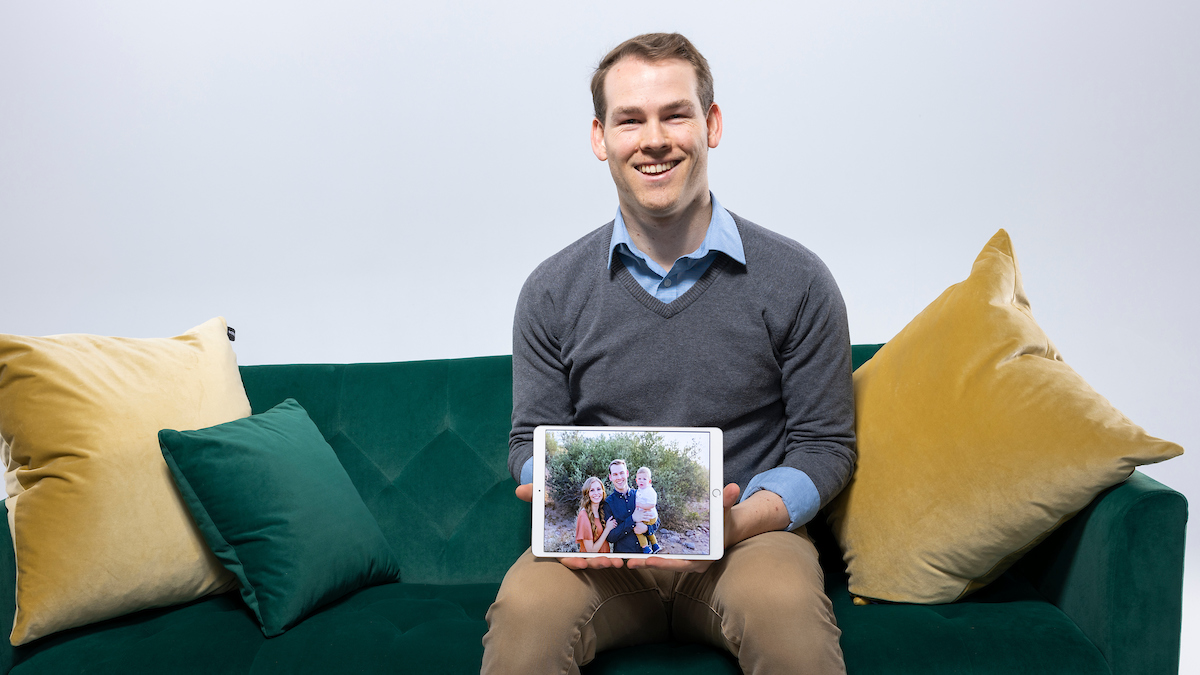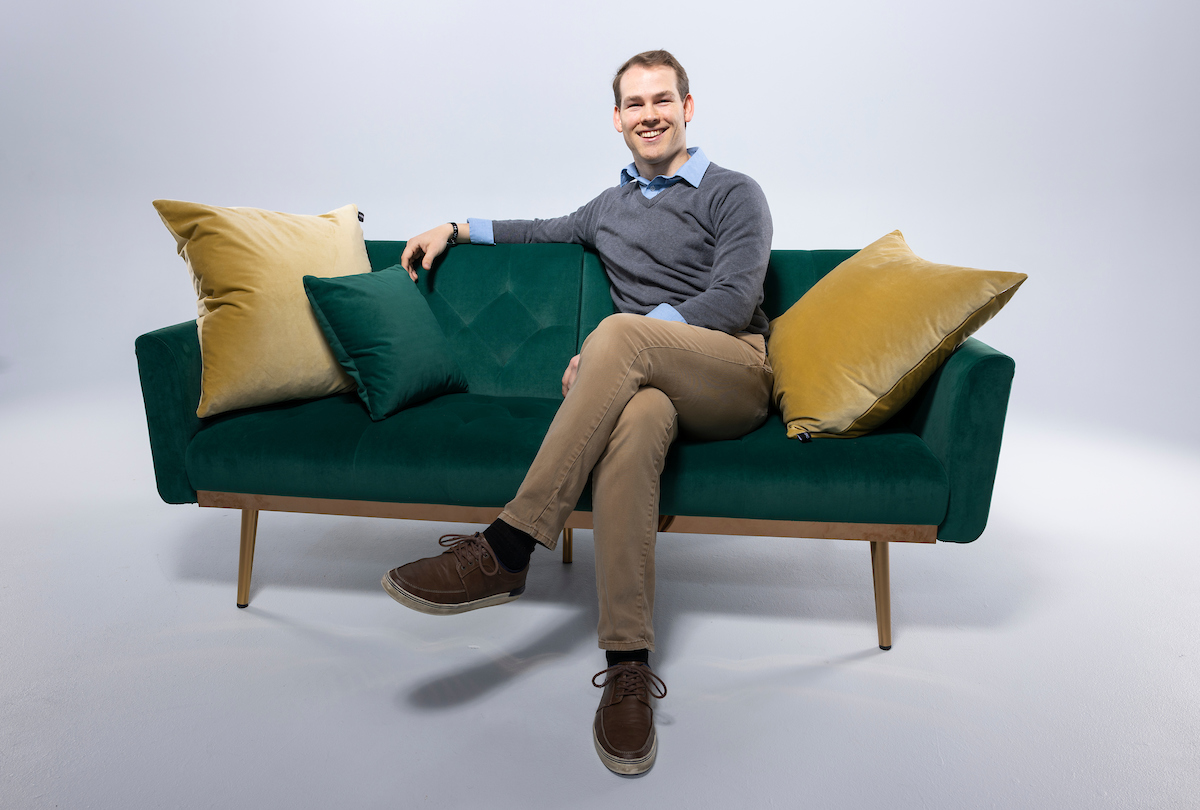As told by Isaac Smith
I didn’t have to be the cookie-cutter pre-med student to get to where I wanted to be. I could just be myself.

Photo by August Miller
I’m a pre-med student. Going to med school was always the plan. I did my first year at Arizona State, and I was the cookie-cutter biology major. Then I took an anthropology class; anthropology is the study of ancient people. It was just a general credit that I needed to get out of the way, but from that, I became interested in people.

I got married, and my wife was at BYU. She was almost done with her degree, so it made more sense for me to move up here to be with her. I decided to transfer to UVU, mostly because they were going to give me scholarship money.
My wife would describe me as a people person. I love to be around people and interact with people. When I got to UVU, I became really interested in understanding and interacting with people. I wanted to bring psychology, or the study of current people, into my education somehow.

I was deciding between minoring in psychology or doing the Honors Program because I didn’t think I could fit both in. I decided to go with the Honors Program.
As a new honor student trying to figure out where I wanted to go and what I wanted to do, I sat with Tiffany Nez, and I realized I didn’t have to be the cookie-cutter biology major. I could still do all my pre-med stuff and major in what I wanted to do. It speaks to why I chose to major in psychology at UVU to interact with people and understand them at a deeper level.
Psychology is a good background for anybody, regardless of what career you’re going into. Whether you’re a doctor, a psychologist, or a web developer, understanding how people think and function is beneficial. I think my studies in psychology will help me better care for my patients because they’ll have a greater understanding of who they are as individuals.

I have to complete an undergraduate research project to get credit for the Honors Program. The project I developed looked at the pediatric population in Utah and then across the United States to determine the prevalence of mental health challenges in pediatrics. From my experience in shadowing physicians, I’ve seen mental health become a much larger picture of health, and doctors are being forced to treat and diagnose mental health challenges. But I didn’t see any formal training they received to do that in the residency programs.
There’s this big population of people who need help, who have been diagnosed with depression or anxiety, or who maybe haven’t been diagnosed yet. After that, the question would be, “who’s best equipped to diagnose and treat mental health challenges?” Obviously, psychiatrists are trained to deal with those kinds of things. But there aren’t enough child psychiatrists specifically to do that. So, do we need to encourage or develop more programs for psychiatrists? Or do we need to incorporate some sort of mental health training in general practice, family practice, or pediatric residency programs to compensate for some of that training?
A lot of the preliminary research that I’ve done shows basically a team of healthcare professionals working together to help an individual. Where your family doctor might be the one that you see regularly, they would get test results back and work with a team of psychologists, psychiatrists, and people who may be trained a little bit more in order to come up with a treatment plan. I think creating more opportunities for teams like that to exist might be a better solution to the problem.

I didn’t have to be the cookie-cutter pre-med student to get to where I wanted to be. I didn’t have to do exactly what I was told to do on paper. I could just be myself. I could study what I wanted to. And so my advice is to use UVU as an opportunity to figure out what you love and what you like and go with it.
Links: